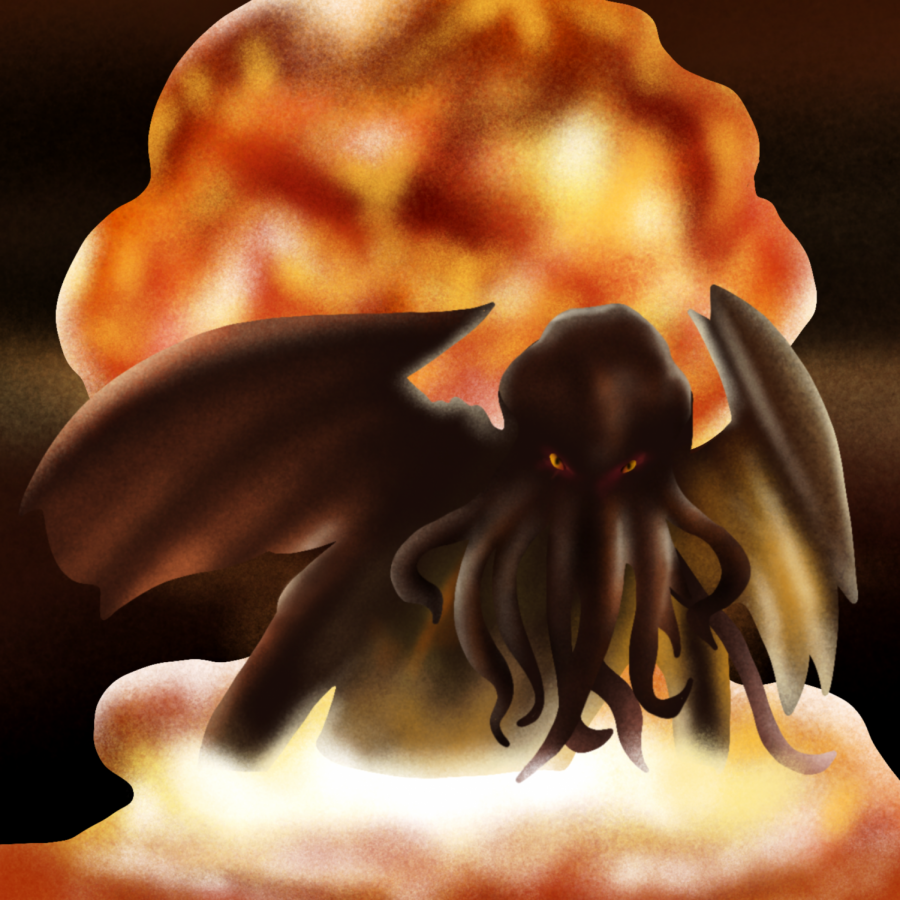Opinion | Weapon advancement inspires horror genre
Nov 12, 2020
With Halloween in the past, many people will be shelving the horror genre until next year. This is understandable as it is commonly associated with terrible, campy, poorly-acted garbage which serves as little more than a backdrop for other activities, or at best something to gawk at.
Of course, horror is like any other genre and has produced quality media of many varieties throughout its history. From authors such as H.G. Wells and Stephen King to directors like John Carpenter and George A. Romero, it has much to offer.
While horror cinema is often the face of the genre, it is not the boundary. The aforementioned authors, among many others, have done just as much to further the genre as any director.
One such author who is generally considered the father of modern horror is the ever-controversial H.P. Lovecraft. While Lovecraft was far from a role model or good person and was largely unsuccessful throughout his life, his work went on to be seminal to the cosmic and existential horror genres and laid the foundation for the way we conceptualize horror today.
But sometimes horror is unintentional. One famous novel from Lovecraft’s time is Erich Remarque’s “All Quiet on the Western Front.” This story is based heavily on Remarque’s own account of the front lines on the Western front in World War I fighting for the German Empire.
Get The Daily Illini in your inbox!
It is generally considered the most important work of fiction regarding World War I and is consistently ranked among the best novels of the 20th century. It was banned in Nazi Germany for its anti-war sentiment and has gone on to be taught in schools around the world.
While at first glance these works are only connected superficially by their time period, a greater respect for the material conditions of the era reveals a connection that potentially runs much deeper. While it is often teleological to ascribe connections to various historical media artifacts in hindsight, the connections between the writings of Lovecraft and Remarque are too significant to ignore.
It is important to understand that both Remarque and Lovecraft were trailblazers in their time. For Remarque, it was previously quite uncommon in the Western literary canon to not only refuse to romanticize war, but plainly state how petrifying it truly is. This blunt method of delivery inspired the works of authors like Ernest Hemingway and Joseph Heller, among others.
For Lovecraft, the kind of horror he attempted to describe was essentially without precedent. While he had been inspired by science fiction and some very early surreal horror writers (such as Robert W. Chambers), Lovecraft was forging a new path for the genre that could not be likened to anything before it.
The world that both Remarque and Lovecraft were reacting to was one of rapid change and progress. But their writing makes the reader question at what cost that progress has come. The rapid technological advancements of the industrial revolution were turned against each other for the first time in a large scale during World War I, and the men like Remarque on both sides were forced to see that progress is not always beautiful.
One could see how Lovecraft was reinterpreting the experiences and writings of people like Remarque and turning them into horror stories, which is what they truly are.
Lovecraft describes monsters that are not just far more powerful than mankind, but far beyond our comprehension. Beings like Cthulhu and Yog-Sothoth could and likely will destroy humanity not, according to Lovecraft, out of contempt or any internal nefarious plot, but simply because they are barely aware of our existence. Much of science fiction exalts mankind as a uniquely important species, but Lovecraft rejects this, reminding us of the massive and uncaring universe we occupy.
When one is forced to reconcile the destructive power of airplanes, machine guns, chemical weapons and tanks, among many other powerful new armaments, it is easy to see how Lovecraft’s writing came to be. An artillery shell, a cloud of mustard gas or a Maxim gun are not evil. They have no will of their own, they have no motives, but they can wipe out hundreds of people in minutes with relative ease. These weapons were Lovecraftian horrors of their own that mankind brought on itself.
H.P. Lovecraft died in 1937, less than a year after the start of the Spanish Civil War and over two years before the start of World War II. His writing only truly found critical and commercial success in the latter part of the 1950s, two decades after his death. It seems fitting that his writing truly found a place in popular culture after the invention of the atomic bomb, the most Lovecraftian weapon of all.
Technology can do many things. It can bring people together, heal them, teach them, save resources, environments and simply entertain. But it can also destroy, and sometimes the technologies we think are milestones of human achievement are actually an existential monster that only we could create.
Dylan is a senior in the College of Media.






